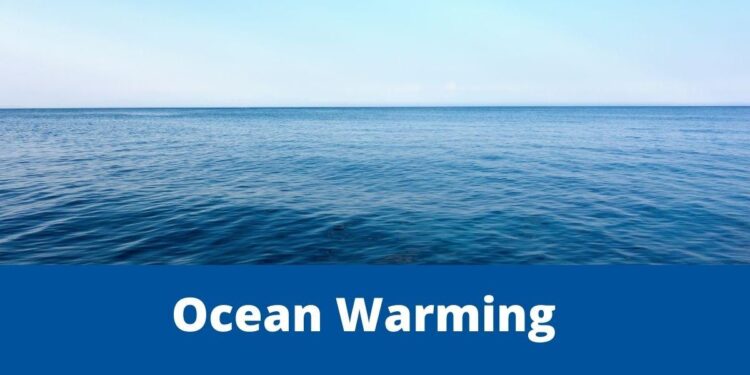In the coastal communities of Albania, generations of fishermen are confronting an alarming new reality as rising sea temperatures decimate fish populations. “I lost my battle,” laments one seasoned fisherman, capturing the despair felt across the industry as warming waters disrupt marine ecosystems and threaten livelihoods. This devastating trend underscores the broader impact of climate change on Albania’s fishing sector, once a vital part of the nation’s economy and culture.
The Impact of Rising Sea Temperatures on Albania’s Traditional Fishing Communities
The once-thriving fishing communities along Albania’s Adriatic coast are facing an unprecedented crisis as rising sea temperatures disrupt marine ecosystems critical to their livelihood. Species such as anchovies and sardines, staples in local catches, have either migrated to cooler waters or experienced population declines. This shift has forced many fishermen to travel farther out to sea, increasing operational costs and diminishing their daily hauls. Elders recount how nets that once brimmed with fish now come up nearly empty, signaling a rapid collapse in fish availability that threatens both food security and cultural heritage.
Key challenges reported by fishing communities include:
- Reduced fish populations: Declining abundance of traditional species.
- Economic hardship: Increased fuel consumption and maintenance costs.
- Loss of generational knowledge: Young locals are abandoning fishing careers.
| Fish Species | Population Change (%) | Average Catch Weight (kg) |
|---|---|---|
| Anchovy | -45% | 3.2 |
| Sardine | -38% | 2.7 |
| Mullet | -25% | 1.9 |
Declining Fish Stocks and Economic Hardship Amid Climate Change Challenges
The once-abundant fishing grounds along Albania’s coast are now barren, with local fishermen reporting unprecedented declines in their daily catches. Rising sea temperatures have disrupted the delicate marine ecosystem, causing traditional fish species to migrate toward cooler waters. This shift has led to a severe drop in income for fishing communities, many of whom have depended on these waters for generations. As the fish disappear, so too do the livelihoods of hundreds of families, sparking fears of widespread economic instability in these coastal towns.
Experts warn that the compounded effects of climate change and overfishing are accelerating the depletion of marine biodiversity. Key species such as sardines, anchovies, and sea bass have shown alarming population decreases, while invasive species disrupt the ecological balance. Below is a summary of the average catch reduction over the past five years, reflecting the stark reality fishermen face:
| Species | 2018 Average Catch (tons) | 2023 Average Catch (tons) | Percentage Decline |
|---|---|---|---|
| Sardines | 120 | 45 | 62.5% |
| Anchovies | 95 | 40 | 57.9% |
| Sea Bass | 80 | 35 | 56.3% |
- Economic impact: Declining catches have resulted in an average 50% drop in fishermen’s earnings.
- Community response: Some fishermen are seeking alternative livelihoods or migrating to urban centers.
- Government action: Calls for sustainable fishing policies and marine protection zones are intensifying.
Urgent Calls for Sustainable Practices and Government Intervention to Protect Albania’s Fisheries
The alarming decline in Albania’s fishing industry is a stark reminder of the urgent need for sustainable environmental policies and robust government action. Local fishermen, once thriving, now face dwindling catches as the Adriatic and Ionian seas warm beyond normal seasonal fluctuations. This shift disrupts marine ecosystems, leading to the migration or death of key species vital to economic and cultural livelihoods. Experts emphasize that without immediate intervention, the collapse of Albania’s fisheries could become irreversible, threatening food security and local economies dependent on these waters.
Advocates call for comprehensive solutions to safeguard marine biodiversity, including:
- Implementing stricter fishing quotas to prevent overexploitation
- Establishing marine protected areas to allow fish stocks to regenerate
- Investing in climate-resilient aquaculture alternatives for coastal communities
- Enhancing scientific monitoring to inform adaptive management policies
| Impact Factor | Current Status | Recommended Action |
|---|---|---|
| Sea Temperature Rise | +1.5¬įC since 2000 | Reduce carbon emissions, monitor changes |
| Fish Stock Depletion | 50% decrease in key species | Enforce catch limits, protect breeding zones |
| Economic Loss | ||
| Economic Loss | Significant decline in revenue for fishing communities | Diversify income sources, support alternative livelihoods |
| Impact Factor | Current Status | Recommended Action |
|---|---|---|
| Sea Temperature Rise | +Insights and ConclusionsAs Albania’s fishing communities confront the harsh realities of a warming sea, the struggle to preserve their livelihoods underscores a broader environmental crisis. The story of lost battles and vanishing catches serves as a stark reminder of climate change’s tangible impacts on local economies and cultures. Without urgent and coordinated action, both at home and abroad, these waters-and the people who depend on them-may face an increasingly uncertain future. ADVERTISEMENT |
















